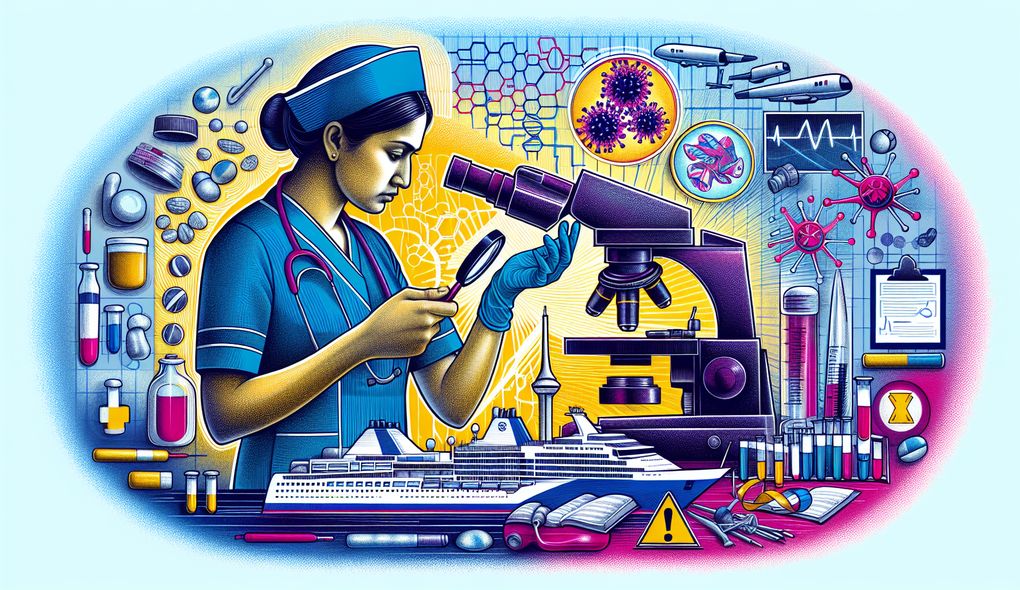How do you handle situations where you encounter unexpected challenges or obstacles in a forensic nursing case?
INTERMEDIATE LEVEL

Sample answer to the question:
When encountering unexpected challenges or obstacles in a forensic nursing case, I remain calm and focused. I assess the situation to understand the core issue and prioritize tasks accordingly. I believe in the importance of effective communication, so I reach out to the appropriate team members, such as law enforcement or other medical professionals, for guidance and collaboration. Adaptability is also crucial in these situations, so I am always prepared to adjust my approach or plans as necessary. Lastly, I am proactive in continuing my education and staying up-to-date with best practices in forensic nursing to ensure I can handle any challenges that arise.
Here is a more solid answer:
Encountering unexpected challenges or obstacles in a forensic nursing case requires a strategic approach. First, I would carefully assess the situation to identify the core issue and prioritize tasks. To effectively handle the challenge, I would communicate with the relevant stakeholders, such as law enforcement or other medical professionals, to gather more information and collaborate on the best course of action. For example, if there is a delay in evidence collection, I would promptly contact the appropriate personnel to address the issue and ensure that crucial evidence is not compromised. Additionally, I understand the importance of adaptability in these situations, so I am always prepared to adjust my plans or approach if necessary. Lastly, I am committed to continuous education and staying updated with advancements in forensic nursing practices. By regularly attending workshops, conferences, and seeking certifications, I ensure that I have the knowledge and skills to handle any challenges that may arise.
Why is this a more solid answer?
The solid answer provides a more comprehensive response, addressing the evaluation areas in more detail. It includes specific examples of how the candidate would assess the situation, communicate with stakeholders, and be adaptable. It also emphasizes the importance of continuous education to stay current in the field. However, it could be improved by providing more specific examples of unexpected challenges or obstacles and how the candidate successfully handled them.
An example of a exceptional answer:
Encountering unexpected challenges or obstacles in a forensic nursing case requires a proactive and systematic approach. Firstly, I would carefully assess the situation to understand the nature of the challenge. For example, if there is a sudden change in the patient's condition, I would act swiftly to stabilize the patient and communicate with the healthcare team to provide the necessary updates. Moreover, effective communication is crucial in these situations. I would liaise with all stakeholders involved, including law enforcement and legal professionals, to ensure a coordinated response. In one instance, I encountered a language barrier while collecting evidence from a non-English speaking patient. To overcome this challenge, I quickly arranged for a professional interpreter, enabling me to accurately document the evidence. Furthermore, adaptability is key. In a recent case, due to unforeseen circumstances, I had to modify the evidence collection process. I collaborated with the multidisciplinary team to develop an alternative plan without compromising the integrity of the evidence. Lastly, I prioritize continuing education by regularly attending forensic nursing conferences and workshops. This allows me to stay updated with the latest practices and advancements in the field. By constantly honing my skills, I am well-equipped to handle unexpected challenges or obstacles in forensic nursing cases.
Why is this an exceptional answer?
The exceptional answer expands on the solid answer by providing specific examples of how the candidate handled unexpected challenges or obstacles in a forensic nursing case. It demonstrates the candidate's ability to stabilize patients, overcome language barriers, collaborate with multidisciplinary teams, and adapt to unforeseen circumstances. The answer also emphasizes the candidate's commitment to continuous education and professional development. It offers a well-rounded and detailed response that aligns with the evaluation areas and the job description.
How to prepare for this question:
- Familiarize yourself with common challenges and obstacles in forensic nursing cases, such as language barriers, evidence collection delays, or sudden changes in patient condition.
- Think of past experiences where you encountered unexpected challenges or obstacles in a nursing setting. Reflect on how you handled those situations and the outcomes.
- Research and stay up-to-date with advancements in forensic nursing practices. Attend workshops, conferences, or pursue certifications to enhance your knowledge and skills.
- Practice effective communication and collaboration skills. Prepare examples that demonstrate your ability to work with multidisciplinary teams, law enforcement, and legal professionals.
- Emphasize your adaptability and flexibility in handling unexpected situations. Prepare examples that showcase your ability to adjust plans and approaches based on evolving circumstances.
What are interviewers evaluating with this question?
- Problem-solving skills
- Communication skills
- Adaptability
- Collaboration
- Continuing education

